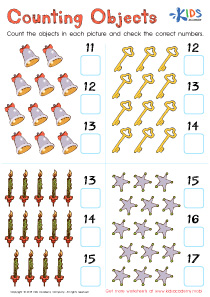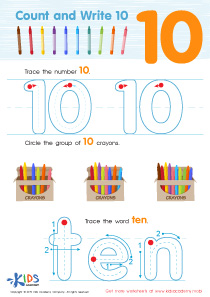Counting skills Normal Numbers up to 100 Worksheets for Ages 4-7
10 filtered results
-
From - To
Enhance your child's counting skills with our engaging "Counting Skills Normal Numbers up to 100" worksheets, designed specifically for ages 4-7. These colorful and interactive activities help young learners master counting through fun exercises that reinforce number recognition and sequence understanding. Each worksheet features vibrant illustrations and varied formats to keep children motivated and excited about math. Perfect for at-home learning or classroom use, these printable resources aim to build a strong foundation in basic numeracy skills. Help your child flourish in their math journey and develop confidence in their counting abilities with our enjoyable worksheets!
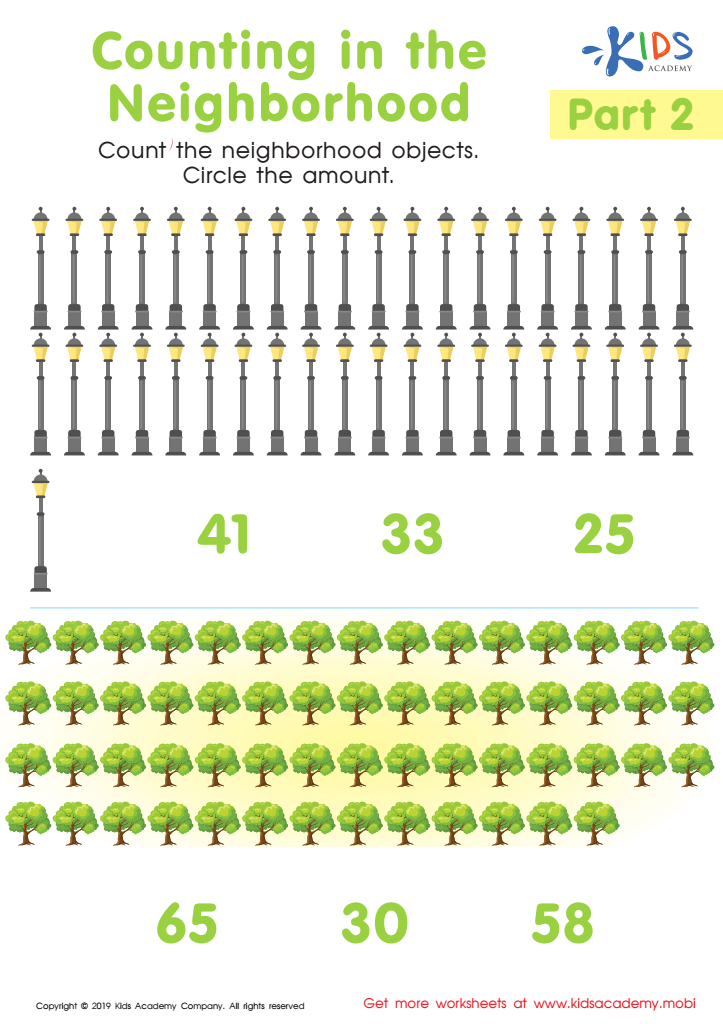

Counting In The Neighborhood Part 2 Worksheet
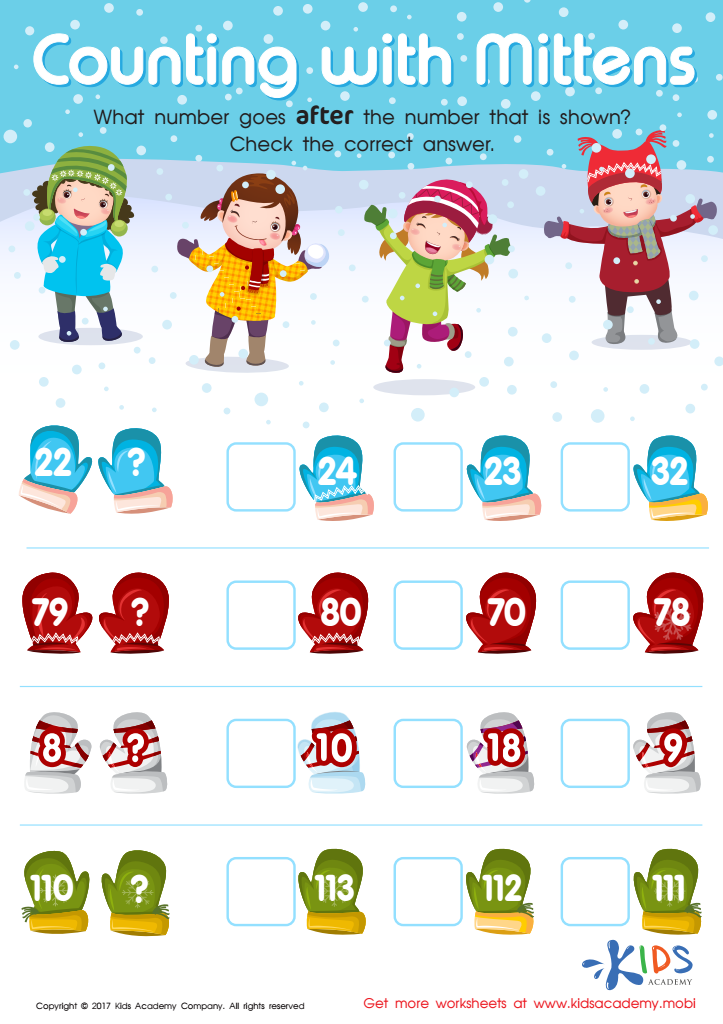

Counting with Mittens Worksheet
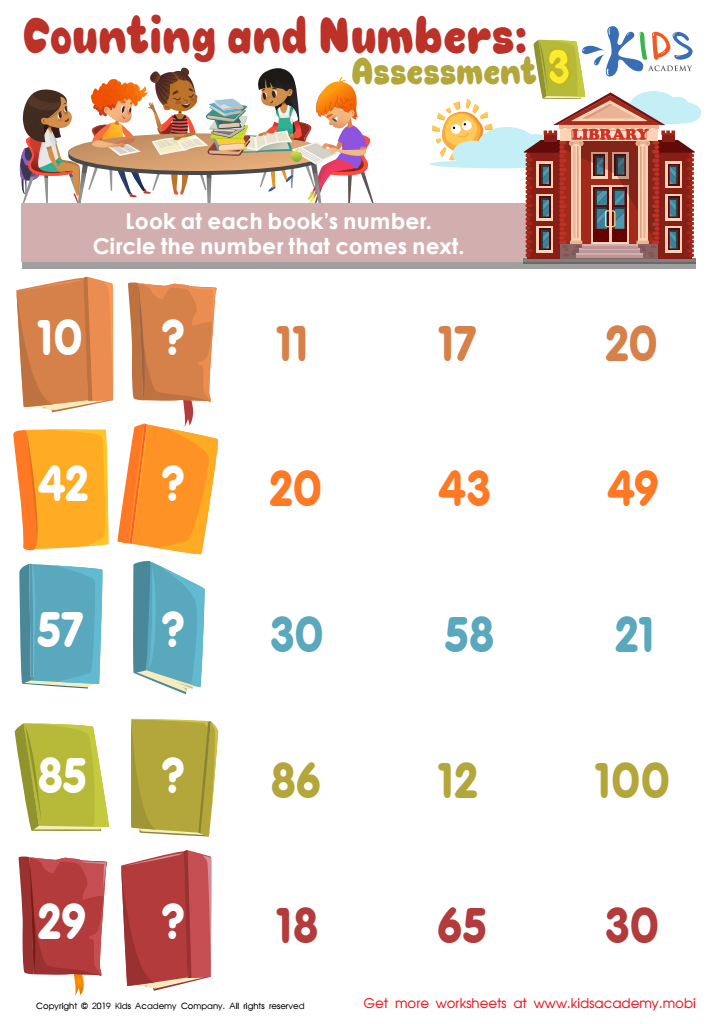

Counting and Numbers: Assessment Worksheet
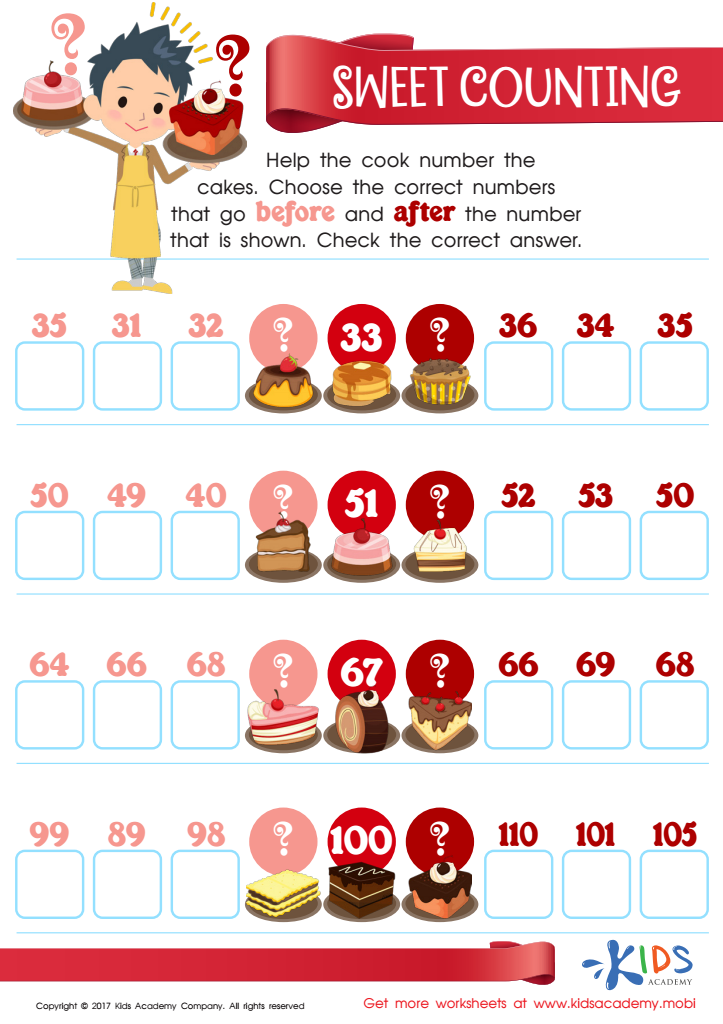

Sweet Counting - Part 1 Worksheet
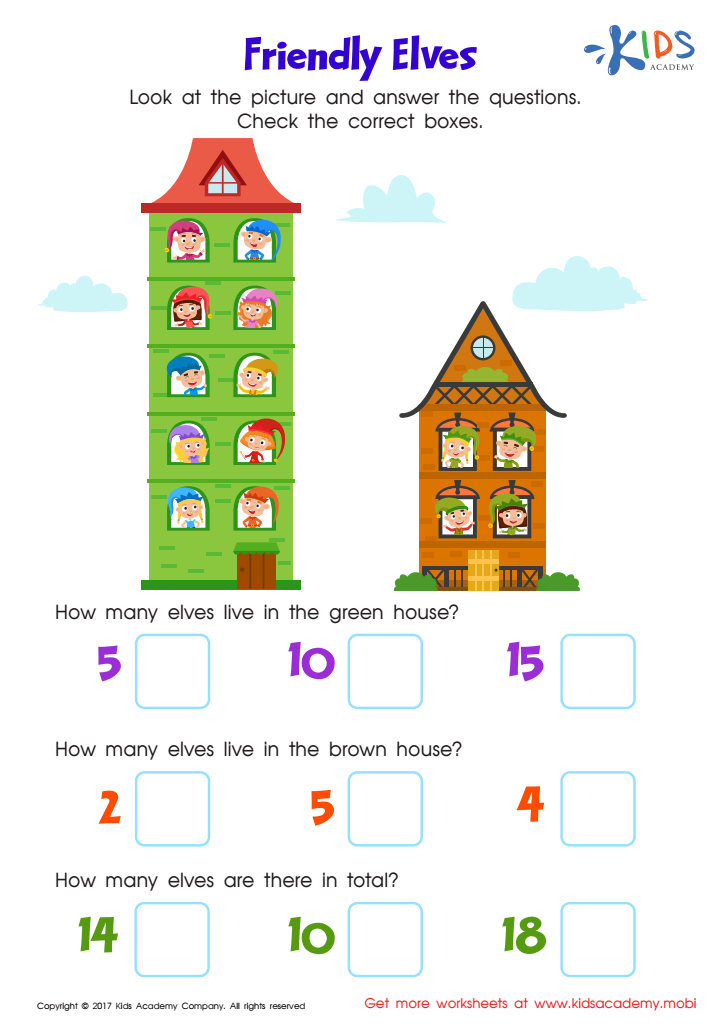

Place Value: Friendly Elves Worksheet
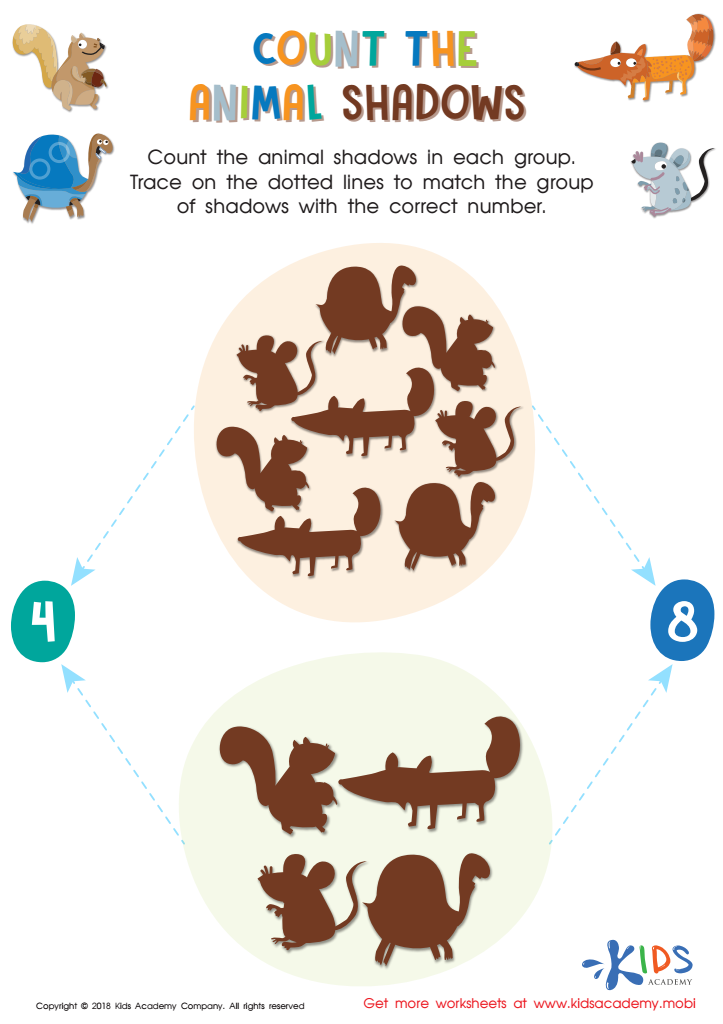

Count the Animal Shadows Worksheet
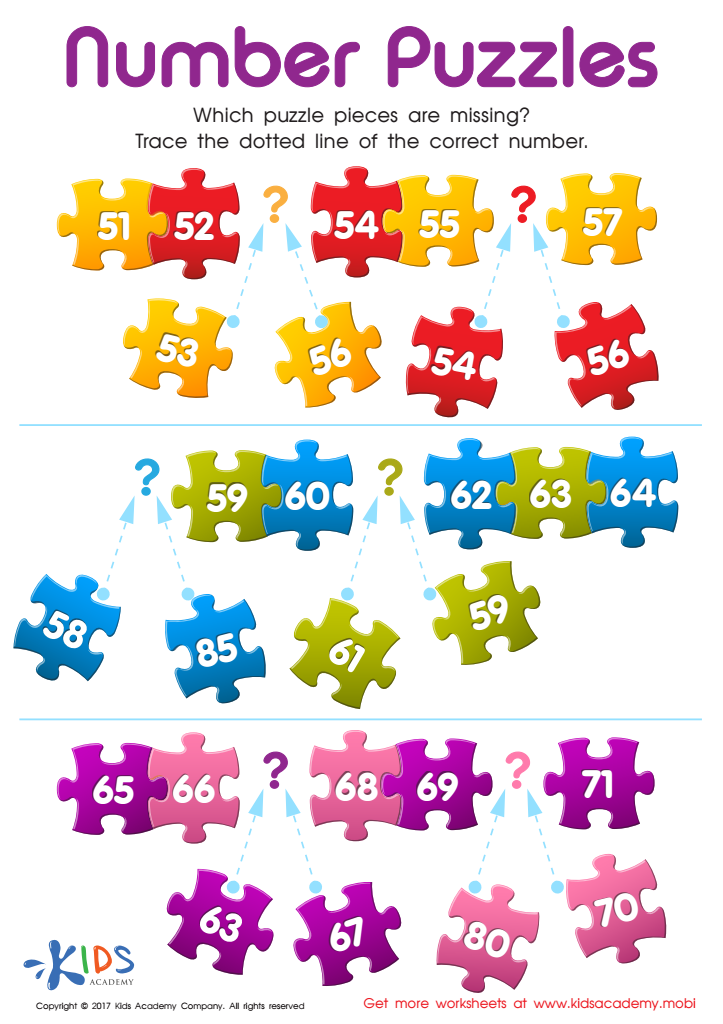

Number Puzzles Worksheet
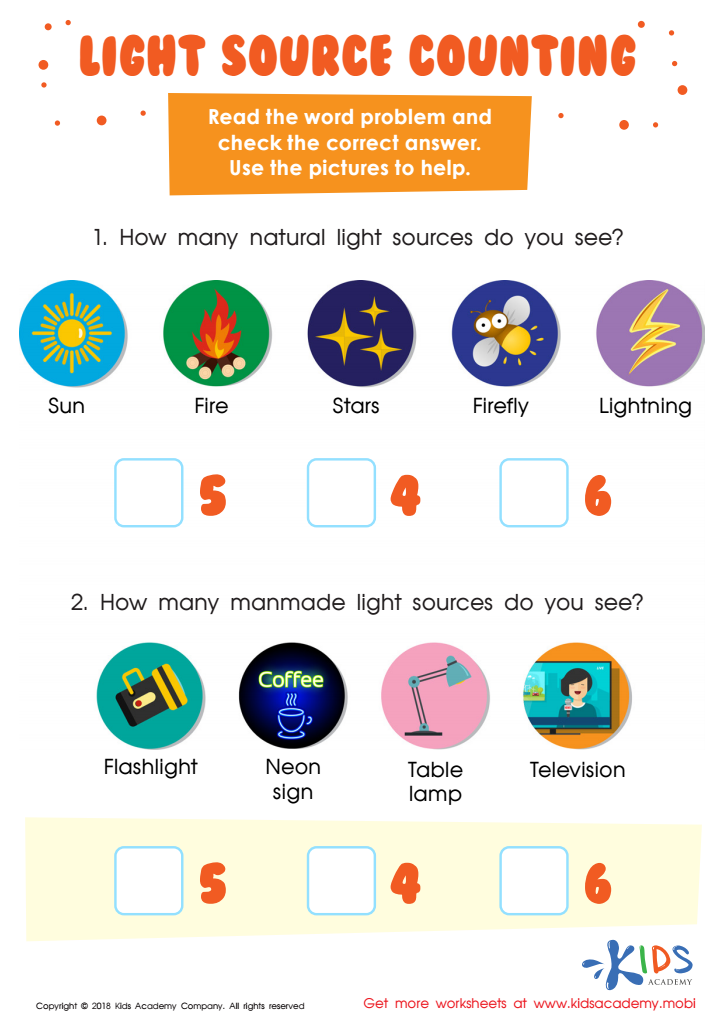

Light Source Counting Worksheet
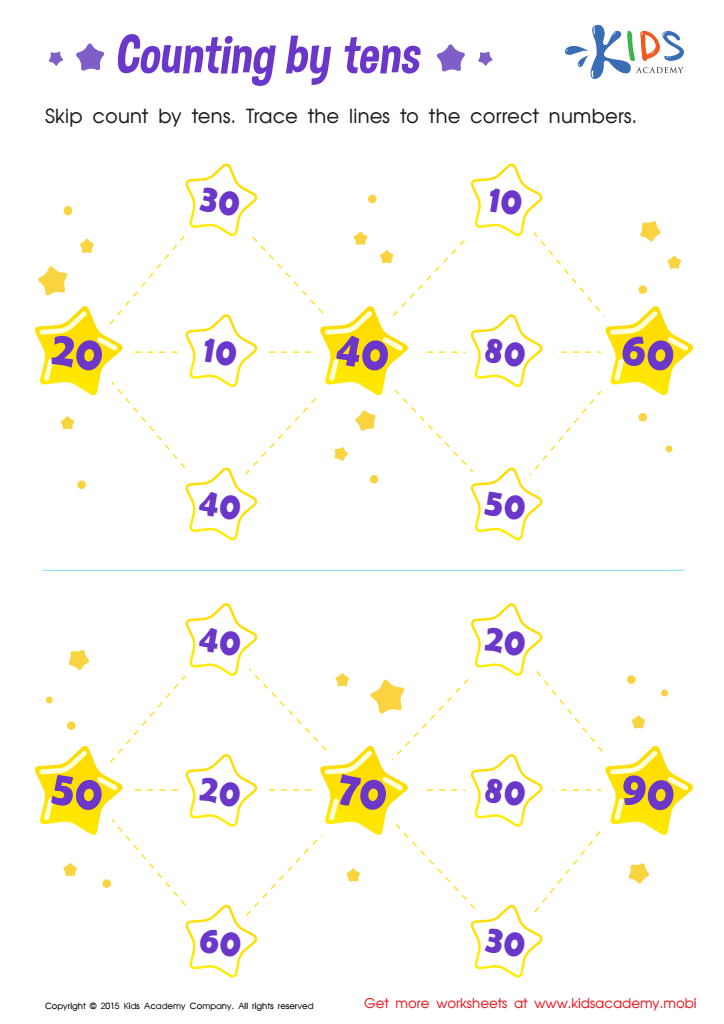

Learn Dozens: Counting by Tens Printable
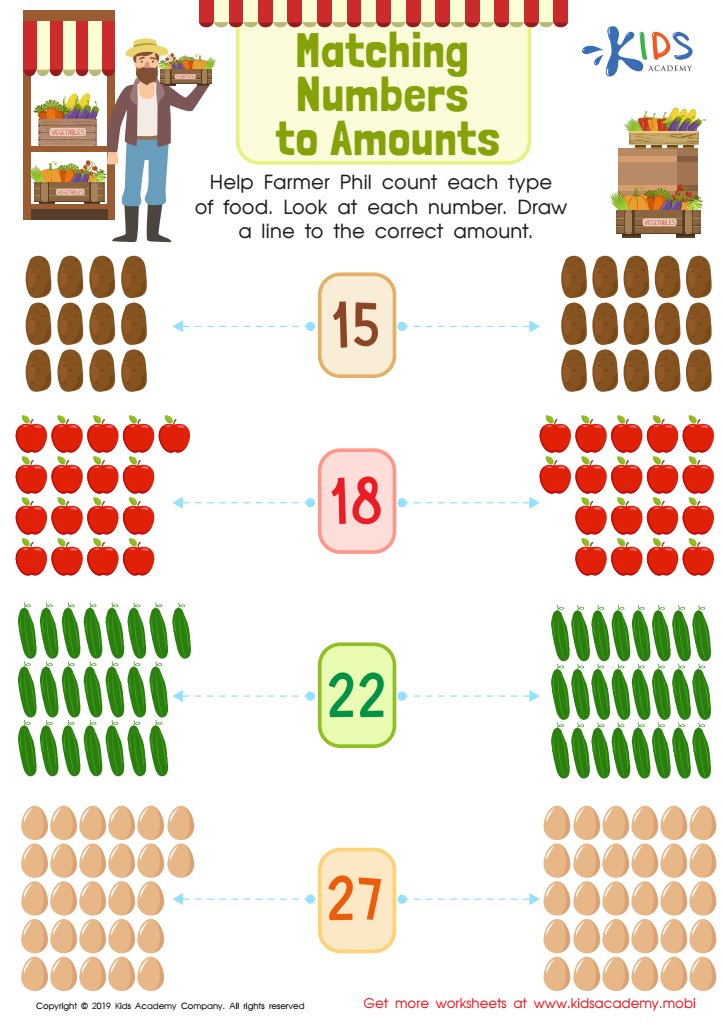

Matching Numbers to Amounts Worksheet
Counting skills with normal numbers up to 100 are foundational for young children aged 4-7, and parents or teachers should prioritize this learning for several reasons. First, mastering counting lays the groundwork for all future math skills. Understanding numbers enables children to recognize patterns, grasp basic operations like addition and subtraction, and begin to engage with early problem-solving.
Second, counting promotes cognitive development. It enhances memory and attention skills as children learn to recall and sequence numbers. It also lays the foundation for mathematical language, allowing them to communicate their understanding effectively.
Third, these skills foster confidence and independence. When children can count and recognize numbers, they feel more capable in both academic and everyday situations, from handling money to measuring ingredients in cooking. This sense of accomplishment can spur further learning and curiosity.
Additionally, counting helps develop social skills through collaborative activities, like counting games, which promote teamwork and communication.
Lastly, early engagement with counting sets the stage for positive attitudes toward math in future academic settings, combating potential math anxiety later in life. In summary, nurturing counting skills in young children is essential for their overall development, confidence, and future academic success.
 Assign to My Students
Assign to My Students







%20(1).jpg)


